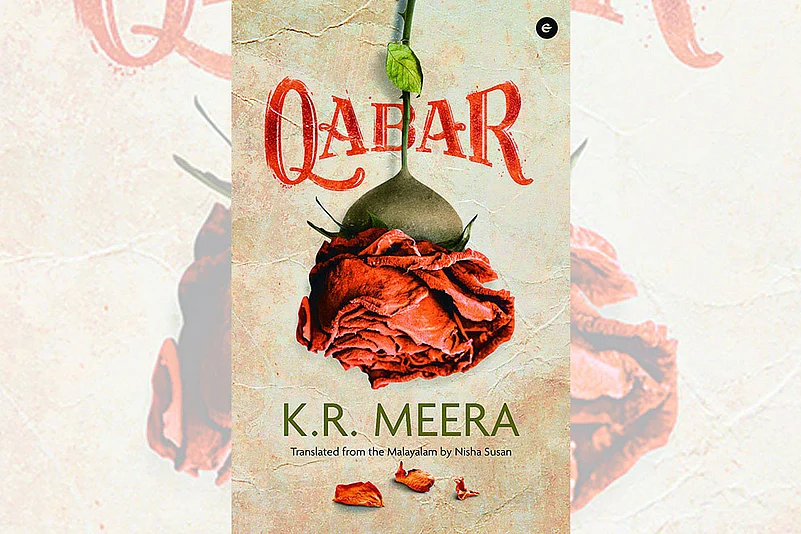Qabar, translated from the original in Malayalam by Nisha Susan, is everything you are looking for when you pick a K.R. Meera book. You have women protagonists who leave a stamp on you with the core of their beings, their desire and longings, the way they pick themselves up when they find parts of them chipped away; you have the writing in all its glory but also contained by the character arcs, so nothing is out of place.
The novella is short but the length it takes you to is infinite. Central to the plot is the matter of a piece of land and the legal wrangle over it that could possibly set off major rumblings between two opposing parties of different faiths. But it is the musings over changing sides, the shifty-natured journey of written records vis-a-vis personal associations on one hand, and the very nature of ‘history’ that can be manipulated, on the other, that embellish the main story.
At one point in the narrative, a character says: “This is what happens when you have too much pride in your traditions. You can’t talk about everything openly. Then you end up manufacturing a new legend.” Sitting in judgement over the legal wrangle is our main protagonist Bhavana, a judge in a district who is also a single mother to a child with ADHD; whose marriage has crumbled under the weight of a male ego crushed beneath male insecurities and her efforts to contain the damage on her own.
The writing is peppered with allegories that burst off and on with an earthy realism rooted in djinns who can read minds and conjure rainbows that leave our main protagonist swooning. Couched and almost hidden in the folds of the play of magic in the narrative lies the often not-talked-about, mostly unacknowledged physical needs of women who walk out from unsatisfying marriages and who must choose between a wide sky to spread their wings or a peg to perch on.
The magical realism elements that the author uses make very strong points: when they appear towards the beginning, it is done so to examine the elevated (literally) status that women are accorded for them to be given due respect, while towards the middle when Bhavana meets a man who is said to have magical powers running in his clan, it creates a frisson of mystery on the surface for readers while in reality, it is the sexual tension that is borne out of years of suppressing desires. The magical element of the possibilities that lie when a man and woman come together from a place of respect and understanding adds a touch of whimsical romance but also brings home how far removed this is from reality.
The suppressed sexual desires of women, the forced domesticity on them that leads them to lives of everyday drudgery but no respect or agency at the end of it all, these are the themes leading readers towards the way the story plays out in all its glory.
The title is in itself a nod to the claustrophobic world of women who have to be boxed in not only by social constructs but the demands of the men in their lives; women who are buried under the weight of what is expected of them. It begs one to consider: is the marital home or marriage itself a tomb, a grave and why has this come to be? K.R. Meera’s characters—Bhavana and her mother—who represent two different generations but share commonalities of having an education, a job and yet shackled by the domesticity of marital life, pandering to the whims of their husbands are every woman of today. At a point in the story, Bhavana’s mother comments on the nature of how a married woman’s house isn’t really her own.
Qabar does not remain a tirade against men who demand more for the little or nothing they grant to the women in their lives. Instead, by focusing on the inner and outer journeys of the two female characters in the way they discover themselves, their needs and spaces, the author creates a terse and tight narrative that takes gradual flight towards a wide expanse.
The translation by Nisha Susan takes the reader along through the ebb and flow, bringing each play of emotions and mood alive. K.R. Meera’s writing is, as always, succinct yet lush in its depth and surpasses the constraints of a place or setting or milieu.


























